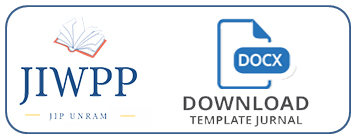FASILITASI PERUMUSAN SUARA ANAK UNTUK PENDIDIKAN LOMBOK TENGAH
DOI:
https://doi.org/10.29303/interaktif.v5i1.320Keywords:
children’s voices, policy makingAbstract
Democratic policy formulation needs data resources from first hand party. Children are the primary beneficiary of educational enterprises. Therefore, they need to be heard and involved in decision making processes. Current activity is an effort to explore and accommodate children’s voices in terms of their right fulfilment. Current activity was conducted in 2 days by inviting children’s representatives from each sub-district in Lombok Tengah. The activity was arranged by BAPPERIDA Kabupaten Lombok Tengah. Methods of activity are lecturing and presentation, focus group discussion, and pleno. Current activity produces 18 points of children’s voices which pertain to expectation for quality improvement of resources to support children’s rights and communication strengthening between children and parents, society, and government as policy maker. Conclusion can be drawn from this activity is children need for time and space for expressing their aspirations with ethics ways yet targeted at the problems they perceive.
References
Conner, J., Posner, M., & Nsowaa, B. (2022). The relationship between student voice and student engagement in urban high schools. The Urban Review, 54(5), 755–774.
Flores, O. J., & Ahn, J. (2024). “Kids Have Taught Me. I Listen to Them”: Principals Legitimizing Student Voice in Their Leadership. AERA Open, 10(1), 1–14. https://doi.org/10.1177/23328584241232596
Geurts, E. M., Reijs, R. P., Leenders, H. H., Jansen, M. W., & Hoebe, C. J. (2024). Co-creation and decision-making with students about teaching and learning: A systematic literature review. Journal of Educational Change, 25(1), 103–125.
Jones, M. A., & Bubb, S. (2021). Student voice to improve schools: Perspectives from students, teachers and leaders in ‘perfect’conditions. Improving Schools, 24(3), 233–244.
Kahne, J., Bowyer, B., Marshall, J., & Hodgin, E. (2022). Is responsiveness to student voice related to academic outcomes? Strengthening the rationale for student voice in school reform. American Journal of Education, 128(3), 389–415.
Rakhshanda, N., Kazi, A. S., Shabana, M., & Uzma, Q. (2020). Institutional facilitation for learning improvement with consideration of students’ voices. World Journal on Educational Technology: Current Issues, 12(4), 389–400.
Rudduck, J., & Fielding, M. (2006). Student voice and the perils of popularity. Educational Review, 58(2), 219–231.
Sandoval, M., & Messiou, K. (2022). Students as researchers for promoting school improvement and inclusion: a review of studies. International Journal of Inclusive Education, 26(8), 780–795.















